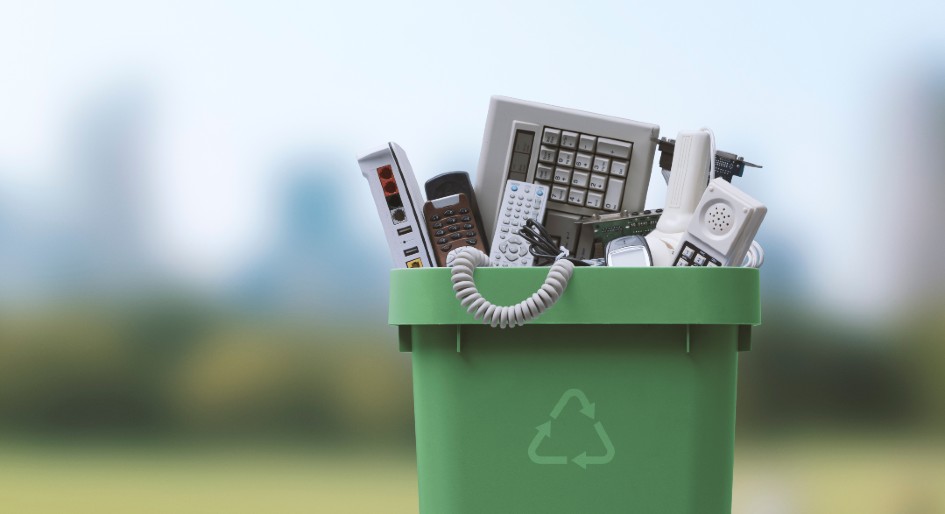The stakes are high for condos when it comes to seizing waste-diverting opportunities as households continue to be large contributors to landfills.
As the latest report on municipal solid waste generation in Canada shows, between 2002 and 2020, overall waste rose by 17 per cent to reach 36 million tonnes. Although diversion from residential sources increased by 85 per cent during this time period, the amount of waste sent to disposal rose by 29 per cent. Data also varies depending on the province. Ontario produced the most residential waste for disposal in 2020 (3.8 million tonnes), a decline from two years prior, but still 11 per cent higher than in 2002.
Promoting responsible waste management practices in condominiums can include enforcing rules when necessary to maintain high standards and engaging residents in conservation resources.
Technology
Cameras can be used to take videos and photos to identify emerging issues and report to property management, such as the improper disposal of waste materials and sharp objects that are harmful to cleaners.
Mitigating strategies
Residents who break waste management rules often claim that there is only one chute in their building. While most modern condos have separate chutes for garbage, food waste, and recycling, older buildings may only have one chute. This can lead to improper disposal of various types of waste. While it may be inconvenient for residents to separate their waste and bring it to the designated room, this does not justify breaking the rules.
The waste management of sites can be audited and necessary information shared with property managers. Cleaning supervisors can send monthly reports and infographics to property management and area managers who then share them with condo boards.
Key information contained in these reports may include the number of times in a month that garbage and recycling machines had a maintenance issue and the cause of odours found inside garbage chutes and compactor rooms.
On designated days, cleaners and superintendents can move waste and recycling bins to secure locations for scheduled pickups to protect them from vandalism or unauthorized use.
By placing bins in a secure area, such as a locked storage room or enclosed space, the bins are less likely to be tampered with. This helps to ensure that the waste and recycling materials are properly collected, handled, and disposed of in an environmentally responsible manner.
Storing the bins in secure locations can also help prevent animals from accessing and dispersing the contents, reducing potential litter and mess in the surrounding area.
Fines
After residents who violate waste disposal rules are given a warning, property management can decide to issue fines after a second warning. Each building has specific waste management rules for its residents.
Common violations include dumping large items in the garbage chute room instead of the designated location in the garbage room, as well as leaving food waste in the chute room instead of disposing of it properly. These violations can result in fines being imposed. It goes to the board bank account to maintain some of the building’s expenditure.
Health and safety
Health and safety is a powerful motivator for encouraging residents to adopt responsible waste management practices. By highlighting the potential risks associated with improper waste disposal, such as contamination of water sources, air pollution, and the spread of diseases, residents are more likely to understand the impact on individuals and communities.
Using scent-free cleaning detergents approved by property management is also a health-friendly strategy. Cleaners often apply these detergents in waste/garbage and compactor rooms.
Since residents enter designated areas in the garbage room to deposit items like batteries, bulbs, electronics, etc., into a labeled bin, a working partnership with companies collecting recyclables and hazardous materials is essential.
Education
Understanding the deeper meaning of proper waste handling—for instance, protecting ecosystems and reducing greenhouse gas emissions—may boost active participation in waste diversion efforts.
Occasionally, sustainability events can inform residents about the deep connection between the environment and waste management practices. Waste Reduction Week in Canada is structured into seven daily themes, for instance, “Textiles Tuesday” and “Plastics Thursday.” “E-Waste Wednesday” focuses on electronic waste, which is quickly becoming one of the fastest growing waste streams in the world.
Each daily theme can be highlighted and connected to waste management practices in the building. Display educational materials around the common areas: elevator TV screens, TV slideshows in lobby areas, emails and monthly newsletter publications. Residents can learn various facts about it and how to keep various materials out of landfills.
Condos can also tap into outreach programs organized by local municipalities or community groups to raise awareness about proper waste disposal practices.
Kwame Anane Frempong is the Client Relations Manager at Diamond Property Services. kwame@diamondps.ca








